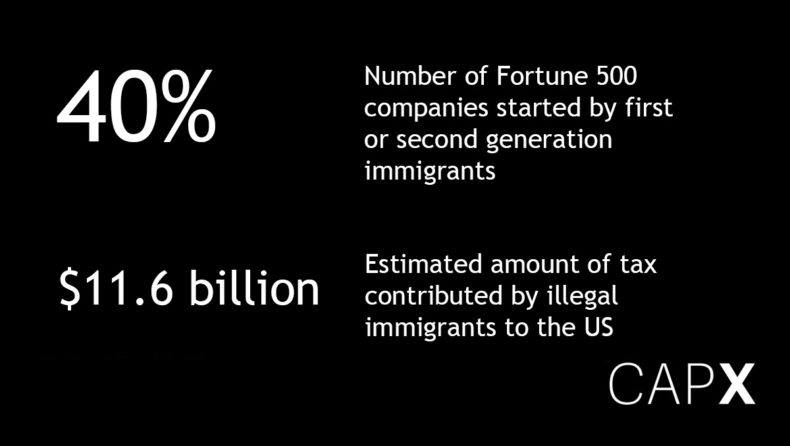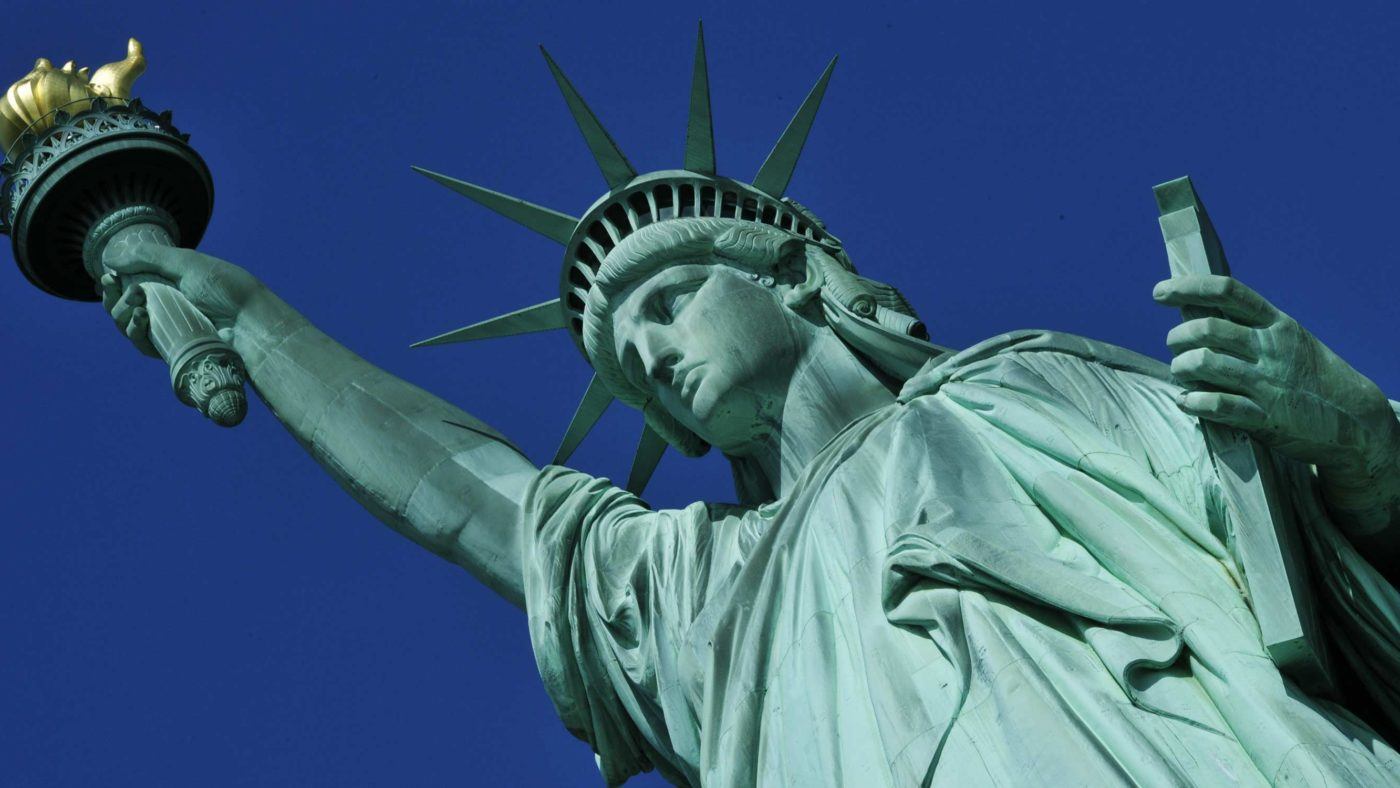When recovery is slow after an economic crisis, and people feel their livelihoods threatened by political and economic change, there is a tune which plays very well in politics: nativism.
Throughout his campaign, Donald Trump’s nativist “America First” message drew vast support. Now that he is in the Oval Office, it is increasingly clear that his rhetoric will be translated into real policies; building that infamous wall on the border with Mexico, and “extreme vetting” of refugees from the Middle East.
Both policies are largely born of prejudice, not facts. They demonstrate a fundamental under-appreciation of the core role which immigrants play, and have always played, in the US economy. Cutting down on immigration, including refugees, will profoundly harm America’s long term prosperity.
Trump’s biggest promise, of course, is the wall. Tony Smith, former director general of UK Border Force, describes land borders as “notoriously difficult to manage”. While physical barriers can certainly help, “ultimately it requires people to stop people” he tells me. A wall only works alongside other measures, in a “layered approach”. This means investing in modern technology such as radar, cameras, aerial surveillance as well as a rapid-response border patrol.
When you have 2,000 miles of border to cover, such measures will cost the taxpayer vast sums – far more than the paltry $12 billion earmarked by the Trump campaign. Mexico is not going to pay, either.
Beyond the logistics, though, lies a greater issue. Thousands of American businesses rely on the immigrant labour which Trump is so desperate to restrict.
America’s depends most heavily on immigrant labour for agriculture. Farmers are falling short of workers for the harvest, a problem which is only getting worse. Labourers are getting older, Americans are increasingly unwilling to work the land, and beefing up borders is likely to put off those essential new workers coming over from Central America. While migration should come through legal means, what other alternatives are there for ensuring farmers can harvest their crops?
Trump’s second big promise – or threat – of “extreme vetting” for refugees coming from predominantly-Muslim countries, is similarly based on stoking up nativist fears for his own popularity.
The impression could not be more false that the border has swung open for ISIS terrorists to stroll into the country. Already it can take up to two years for Syrian refugees to enter the US, due to strict background checks, screenings and interviews. They already experience “extreme vetting”.
Instead, Trump’s policy is the thinly-veiled restriction of refugee migration based on their religious beliefs, in direct violation of the First Amendment, proclaiming freedom of religion.
There is no evidence of Syrian refugees posing a threat and this supposed need for increased security is based on the racial stereotyping of them as radical Islamic terrorists. In fact, according to Robert Mckenzie of the Brookings Institution, only five out of 800,000 refugees resettled in the past 15 years have been arrested on terrorism charges.
Not only does Washington have a moral responsibility in helping to settle those displaced by war, but they too add to the nation’s cultural and economic wealth.
While, of course, there is an initial outlay of state money to support refugee populations, in the long term, refugees can contribute a great deal. Various reports in Turkey show that, in the space of just a few years, Syrian refugees are contributing a great deal to their economy. According to one think tank in Ankara, the Economic Policy Research Foundation, over 4,000 new businesses have been set up by Syrians or Syrians with Turkish partners since 2011.

Immigrants are particularly beneficial economically because they tend to be entrepreneurial: after all, you need to have guts to travel hundreds of miles in search of success. The figures are staggering. Despite accounting for 13 per cent of the population, immigrants start 28 per cent of all new US businesses, while over 40 per cent of Fortune 500 companies were founded by first or second generation immigrants. Illegal immigrants contribute too. They are estimated to pay around $11.6 billion per year in tax, which would grow substantially if they were naturalised.
The Mexicans and Muslims bearing the brunt of Trump’s xenophobia now could just as easily be the new version of the Jewish, Italian, and Eastern European workers who made America so great throughout the 20th century.
Despite Trump’s policies, politicians on both sides of America’s divide recognise the importance of immigration. Responsibility now lies with Republicans in Congress to stand up to their President. If they do not, nativism will weaken both the character and fortunes of a nation built by immigrants.


